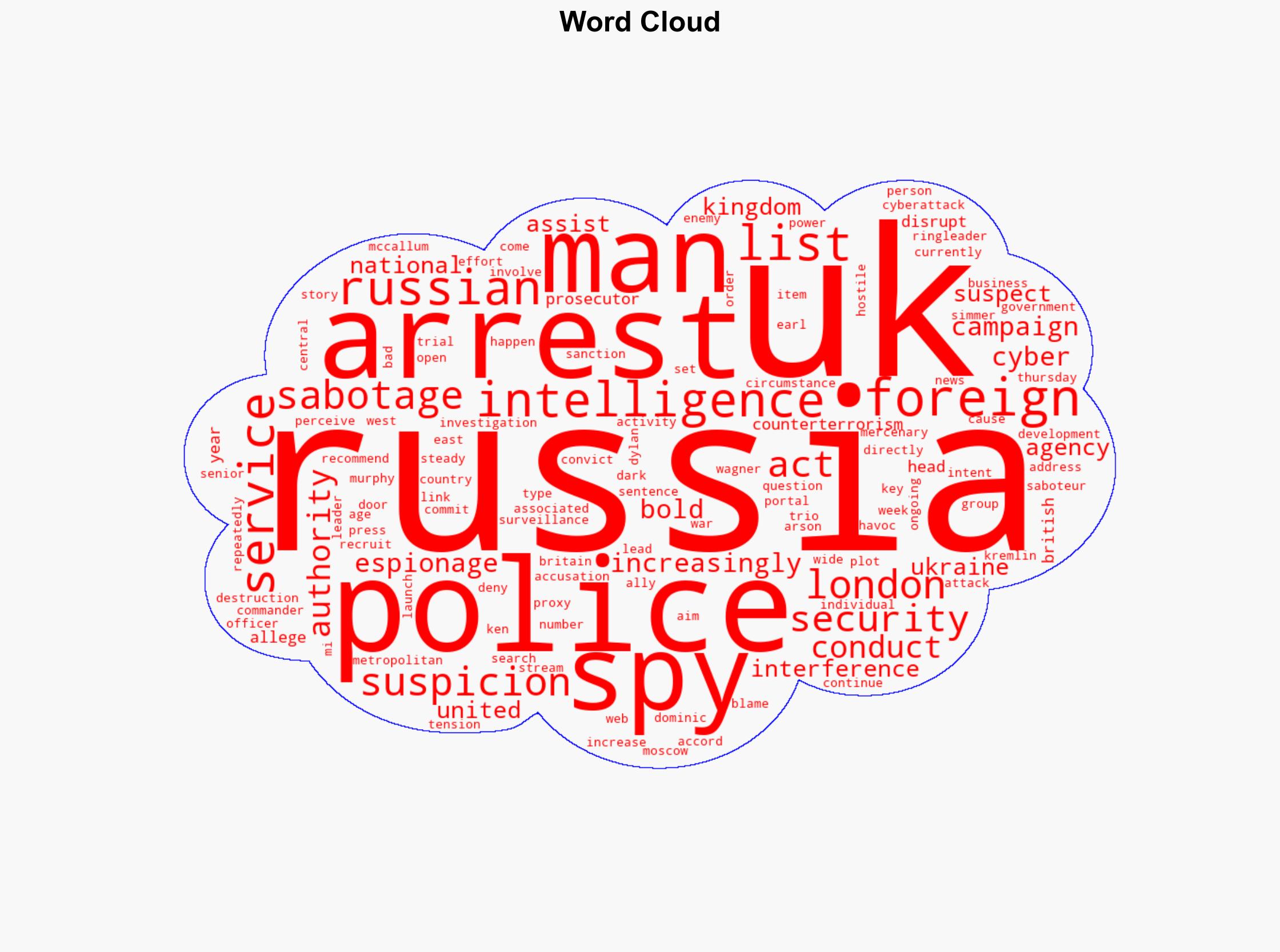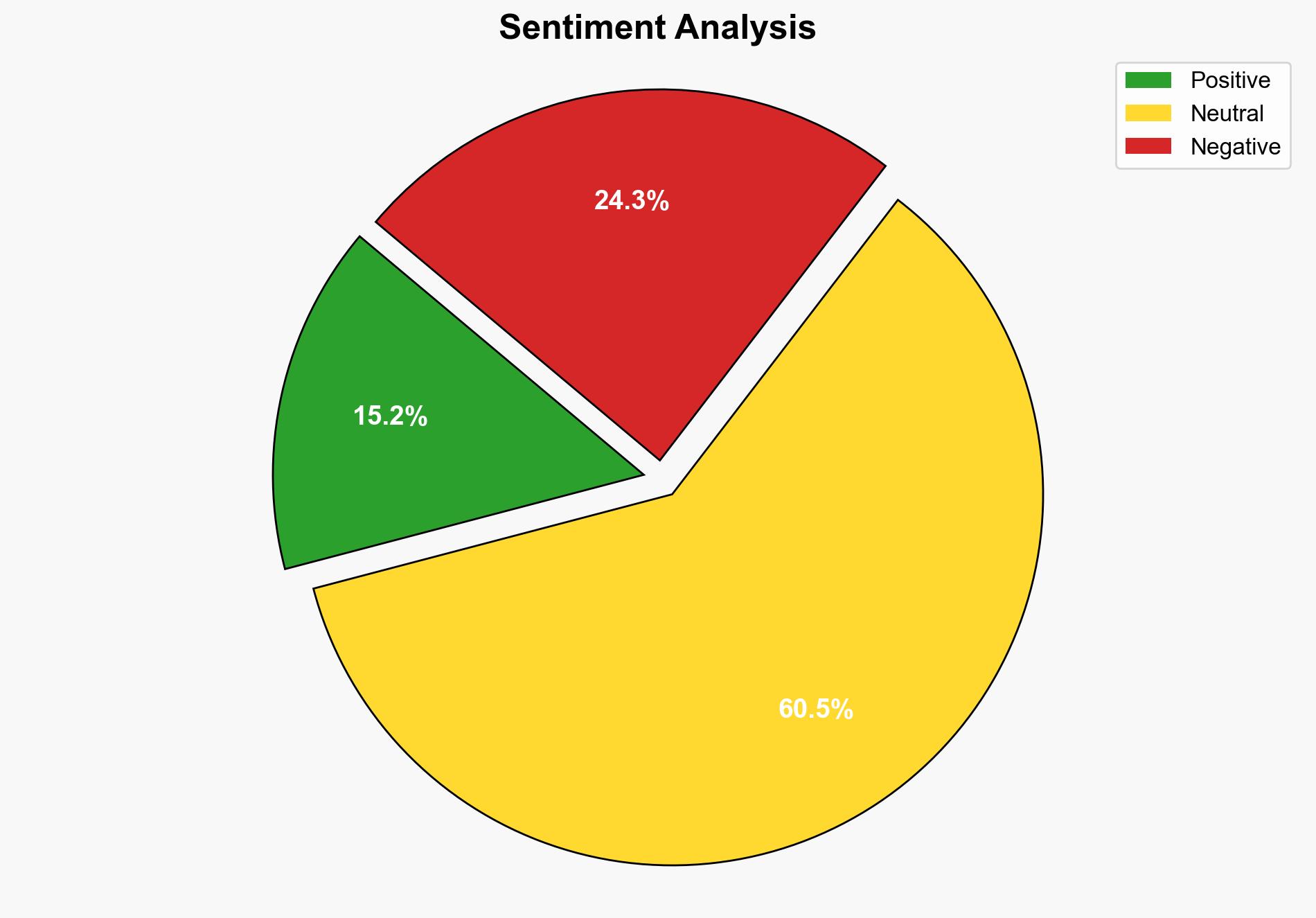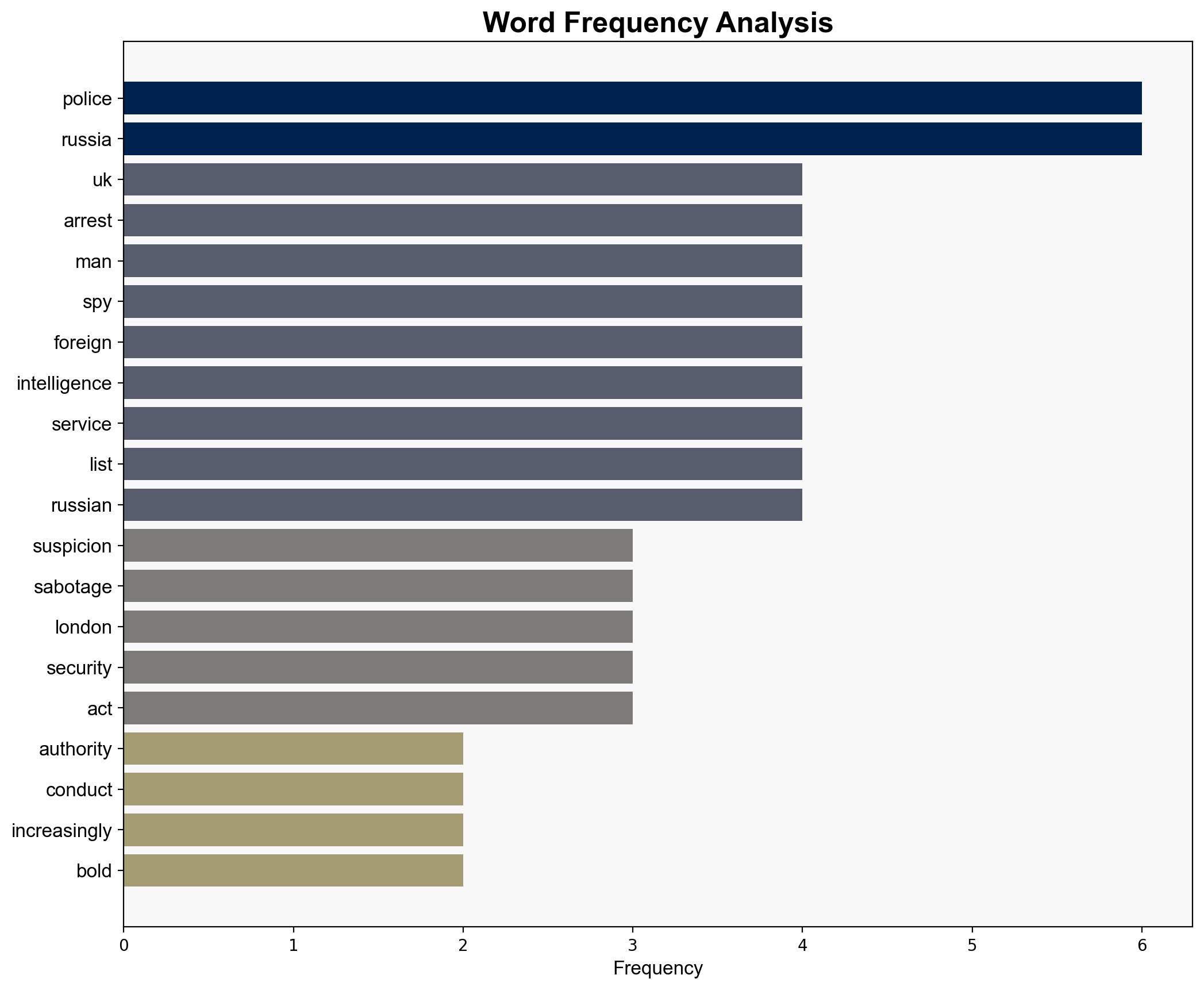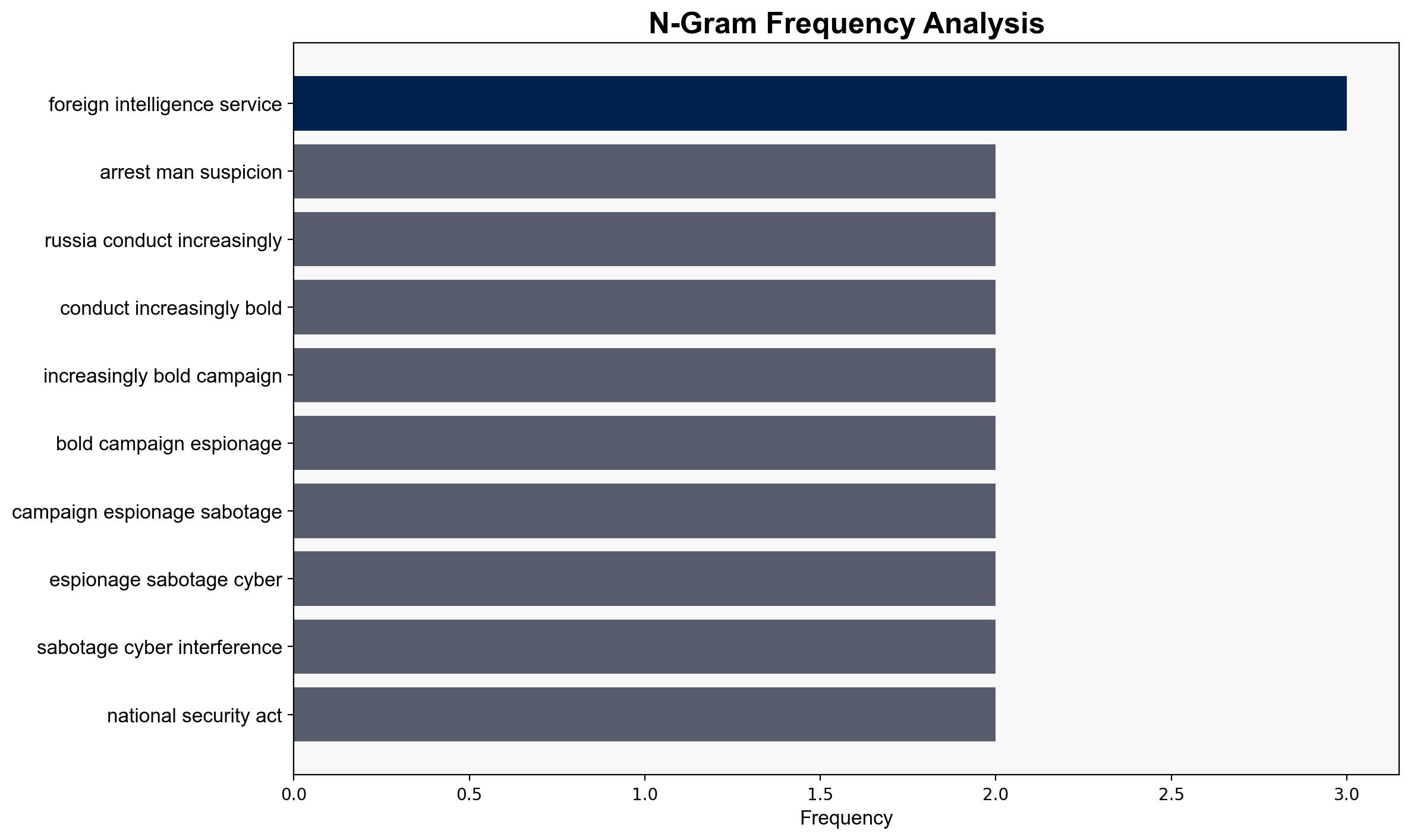UK police arrest three men on suspicion of spying for Russia – Al Jazeera English
Published on: 2025-10-23
Intelligence Report: UK police arrest three men on suspicion of spying for Russia – Al Jazeera English
1. BLUF (Bottom Line Up Front)
The most supported hypothesis is that the arrests are part of a broader, coordinated effort by Russia to conduct espionage and sabotage activities in the UK, leveraging proxy agents to mitigate direct attribution. Confidence in this assessment is moderate due to the lack of detailed evidence and the potential for misinformation. Recommended action includes enhancing counterintelligence measures and international collaboration to disrupt espionage networks.
2. Competing Hypotheses
1. **Hypothesis A**: The arrests are part of a coordinated Russian espionage campaign targeting the UK, using proxy agents to conduct operations that include sabotage and cyber interference.
2. **Hypothesis B**: The arrests are isolated incidents, possibly exaggerated by UK authorities to justify increased security measures and political posturing against Russia amidst ongoing tensions related to the Ukraine conflict.
Using the Analysis of Competing Hypotheses (ACH) 2.0, Hypothesis A is better supported due to the pattern of increased espionage activities and the recent history of similar incidents involving Russian operatives in the UK. Hypothesis B lacks corroborative evidence and relies on speculative motives.
3. Key Assumptions and Red Flags
– **Assumptions**: It is assumed that the individuals arrested have direct links to Russian intelligence services. There is an assumption that the UK authorities have credible evidence to support these arrests.
– **Red Flags**: Potential for cognitive bias in interpreting Russian activities as inherently hostile. Lack of transparency regarding the evidence leading to the arrests raises questions about the robustness of the intelligence.
– **Blind Spots**: Limited information on the operational details of the alleged espionage activities. Possible underestimation of Russia’s ability to use non-state actors effectively.
4. Implications and Strategic Risks
The arrests could signal an escalation in espionage activities, potentially leading to increased diplomatic tensions between the UK and Russia. There is a risk of retaliatory actions, including cyberattacks or further espionage efforts. The situation could also strain UK resources dedicated to counterintelligence and national security.
5. Recommendations and Outlook
- Enhance surveillance and monitoring of suspected espionage networks within the UK.
- Strengthen international cooperation with allies to share intelligence and coordinate countermeasures against Russian espionage.
- Scenario Projections:
- **Best Case**: Successful disruption of espionage networks leads to reduced Russian intelligence activities in the UK.
- **Worst Case**: Escalation of espionage activities results in significant security breaches and diplomatic fallout.
- **Most Likely**: Continued low-level espionage activities with periodic arrests and disruptions.
6. Key Individuals and Entities
– Dylan Earl: Convicted under the National Security Act, potentially linked to broader espionage activities.
– Ken McCallum: Head of the UK’s MI5, recently highlighted Russian espionage threats.
7. Thematic Tags
national security threats, cybersecurity, counter-terrorism, regional focus





